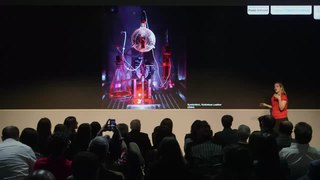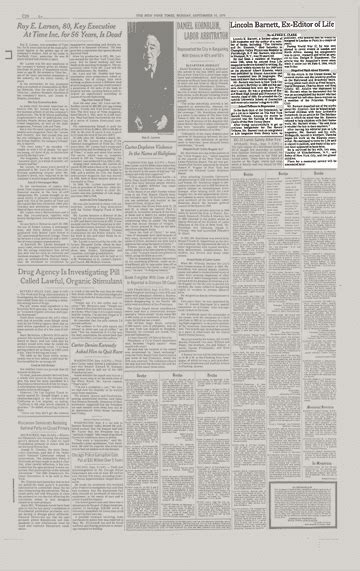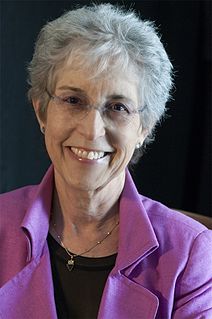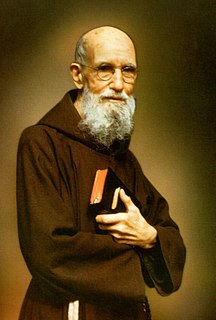Top 1200 Cognitive Science Quotes & Sayings
Explore popular Cognitive Science quotes.
Last updated on October 7, 2024.
Epistemology now flourishes with various complementary approaches. This includes formal epistemology, experimental philosophy, cognitive science and psychology, including relevant brain science, and other philosophical subfields, such as metaphysics, action theory, language, and mind. It is not as though all questions of armchair, traditional epistemology are already settled conclusively, with unanimity or even consensus. We still need to reason our way together to a better view of those issues.
I know we can all remember the days of sitting in algebra class asking ourselves, 'why will I need algebra or chemistry in the future?' The answer was and still remains that advanced math and science classes help high school students develop their analytical and cognitive skills and better prepare them to compete in college and the workplace.
What I argue is that talk of knowledge plays an important role in theories within cognitive ethology. The idea is this. First, one sees cognitive ethologists arguing that we need to attribute propositional attitudes to some animals in order to explain the sophistication of their cognitive achievements.
People think that design is styling. Design is not style. It's not about giving shape to the shell and not giving a damn about the guts. Good design is a renaissance attitude that combines technology, cognitive science, human need and beauty to produce something that the world didn't know it was missing.
Of course our genes will make some capacities very much easier to learn than others, and of course our genes themselves are not learned. But the point remains that genes themselves are not cognitive capacities, and that anything worth calling a cognitive capacity will depend to some degree on learning and so not be innate.
The fact that we have been able to develop a successful science, which issues in ever more accurate predictions and broader explanations, is the real ground for confidence that we are in a position to gain knowledge of the world around us. At the same time, one might ask how it is that the cognitive equipment we have came about, and here, no doubt, our evolutionary origins are relevant.
In studying language we can discover many basic properties of this cognitive structure, its organization, and also the genetic predispositions that provide the foundation for its development. So in this respect, linguistics, first of all, tries to characterize a major feature of human cognitive organization. And second, I think it may provide a suggestive model for the study of other cognitive systems. And the collection of these systems is one aspect of human nature.
One of the things cognitive science teaches us is that when people define their very identity by a worldview, or a narrative, or a mode of thought, they are unlikely to change-for the simple reason that it is physically part of their brain, and so many other aspects of their brain structure would also have to change; that change is highly unlikely.
We are living in a society that is totally dependent on science and high technology, and yet most of us are effectively alienated and excluded from its workings, from the values of science, the methods of science, and the language of science. A good place to start would be for as many of us as possible to begin to understand the decision-making and the basis for those decisions, and to act independently and not be manipulated into thinking one thing or another, but to learn how to think. That's what science does.
I'm doing a lot of cognitive processing. I'm gathering research. I'm processing it. I'm arranging the data. I'm sorting out the narrative. I'm designing. It's almost as if I do all the cognitive work that you then don't have to do. I digest it, process it, and then offer something that's very easy for you to digest.
The scientific method is designed to help investigators overcome the most entrenched human cognitive habit: the confirmation bias, the tendency to notice and remember evidence that confirms our beliefs or decisions, and to ignore, dismiss, or forget evidence that is discrepant. That's why we are all inclined to stick to a hypothesis we believe in. Science is one way of forcing us, kicking and screaming if necessary, to modify our views.
Think about when a digital business marries up with what I'll call 'digital intelligence.' It is the dawn of a new era about being a 'cognitive' business. When every product, every service, how you run your company can actually have a piece that learns and thinks as part of it, you will be a cognitive business.
It is time to create new social science departments that reflect the breadth and complexity of the problems we face as well as the novelty of 21st-century science. These would include departments of biosocial science, network science, neuroeconomics, behavioral genetics and computational social science.
All Science is necessarily prophetic, so truly so, that the power of prophecy is the test, the infallible criterion, by which any presumed Science is ascertained to be actually & verily science. The Ptolemaic Astronomy was barely able to prognosticate a lunar eclipse; with Kepler and Newton came Science and Prophecy.
Social Science, is not a 'gay science' but rueful, which finds the secret of this universe in 'supply and demand' and reduces the duty of human governors to that of letting men alone. Not a 'gay science', no, a dreary, desolate, and indeed quite abject and distressing one; what we might call, the dismal science
My feeling is that a human being or any complex organism has a system of cognitive structures that develop much in the way the physical organs of the body develop. That is, in their fundamental character they are innate; their basic form is determined by the genetic structure of the organism. Of course, they grow under particular environmental conditions, assuming a specific form that admits of some variation. Much of what is distinctive among human beings is a specific manner in which a variety of shared cognitive structures develop.
In general, I'm in support of promoting art and science in public schools. I think music and science are probably the most important factors for the human brain developing. Even more so than any other fields, because music covers mathematics, cognitive reasoning, motor skills, coordination, like, it's kind of everything.
Our relationship with sleep is currently in crisis, but we're also living in a golden age of sleep science - revealing all the ways in which sleep and dreams play a vital role in our decision-making, emotional intelligence, cognitive function, and creativity. Every week, new research reveals how vital sleep is to our health, happiness, job performance, and relationships.
Science fiction is fantasy about issues of science. Science fiction is a subset of fantasy. Fantasy predated it by several millennia. The '30s to the '50s were the golden age of science fiction - this was because, to a large degree, it was at this point that technology and science had exposed its potential without revealing the limitations.
The new way of thinking, spawned by the cognitive revolution, shows strong promise. Reversing previous doctrine in science, the new paradigm affirms that the world we live in is driven not solely by mindless physical forces but, more crucially, by subjective human values. Human values become the underlying key to world change.
Myths, whether in written or visual form, serve a vital role of asking unanswerable questions and providing unquestionable answers. Most of us, most of the time, have a low tolerance for ambiguity and uncertainty. We want to reduce the cognitive dissonance of not knowing by filling the gaps with answers. Traditionally, religious myths have served that role, but today — the age of science — science fiction is our mythology.





















































